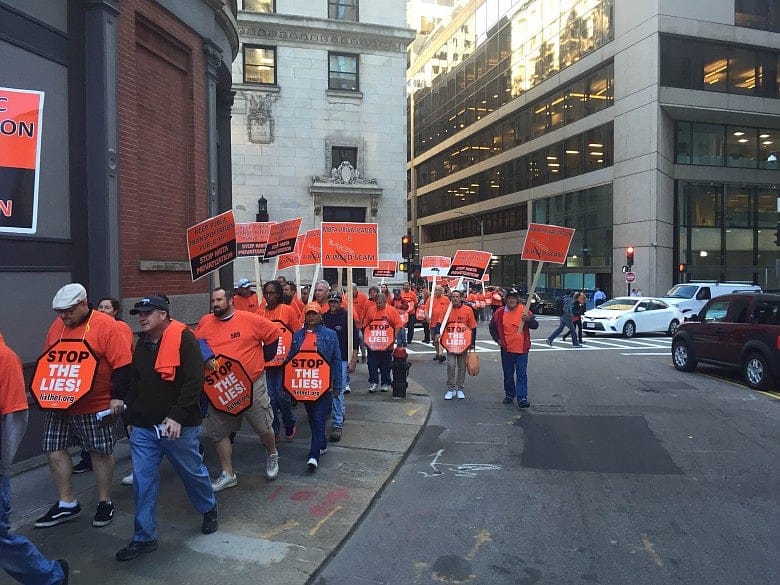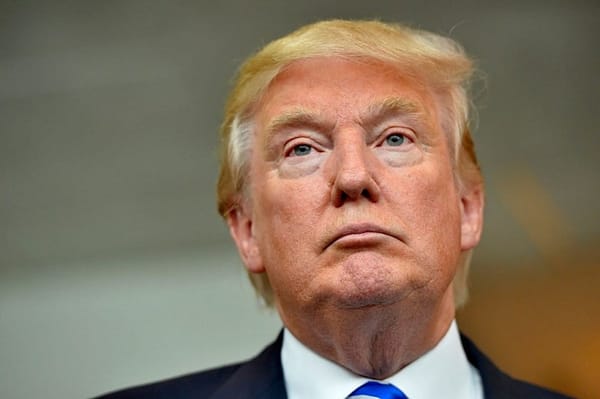T privatization proposals stir labor protest against Pioneer

Gov. Charlie Baker could use his temporary power to privatize bus maintenance at the Massachusetts Bay Transportation Authority and take other steps to save as much as $122 million a year, according to the Pioneer Institute, whose advocacy for such measures has drawn the ire of public unions and did so again this week.
Even as the Boston-based nonprofit research organization – which was once led by Baker – was putting out its latest T examination, members of the Boston Carmen's Union Local 589 picketed its downtown offices Wednesday morning.

